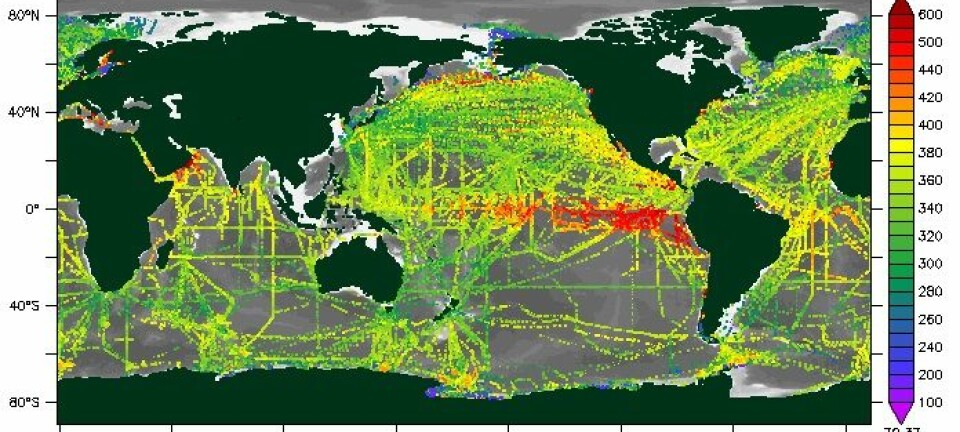
Four years later: is CO2 making us fat?
In 2012 a group of scientists proposed a hypothesis that CO2 in the atmosphere is making us fat. We’ve checked in with the scientists to see what developments they’ve made.
In 2012, ScienceNordic reported on some intriguing research: CO2 (carbon dioxide) in the atmosphere might be making us all fatter.
The hypothesis could explain why people all over the world have been getting heavier, regardless of whether they started out slim or already carried some extra weight. It could also help to explain why east coast Americans, who experience the highest US concentrations of CO2, have gained the most weight.
And it does not just apply to humans. In controlled laboratory conditions, eight different animal species all gained weight when exposed to higher concentrations of CO2.
The theory is that CO2 lowers the pH of our blood, making it more acidic. This has an effect on the brain, which increases appetite.
Read More: New theory: CO2 makes you fat
Hypothesis travelled the world
An initial investigation of six people in a climate controlled room showed that people tended to eat more when the air in the room contained more CO2.
The original article quickly spread around the world from our Danish language site Videnskab.dk via ScienceNordic. And the scientists themselves had big plans to expand their research.
But what happened after the media frenzy had died down?
ScienceNordic checked in with lead-author Lars Georg-Hersoug, now at the Department of Public Health, University of Copenhagen, Denmark, to see what the scientists did next.
Read More: Seven tips to cut your CO2 emissions
No effect observed in rats
Despite the initial excitement, a follow-up study did not elucidate any definite conclusions on whether CO2 really could be making us all fatter.
“We trialled a small pilot study with rats to see if we could see an effect of slightly elevated CO2, but we didn’t see any significant effects,” writes Georg-Hersoug in an email to ScienceNordic.
“But the results were inconclusive, and could either be due to the fact that there really was no effect or that the trial was too small,” writes Georg-Hersoug.
Read More: Danish scientists are turning CO2 into medicine
No funding for CO2 project
“Unfortunately we didn’t manage to advance the study. We applied for funding from several different agencies but with no success. The project received praise, but we weren’t allocated any money,” he writes.
“Since then, a lot has happened in obesity research, the focus has changed towards interactions with our microbiome and their effects on our bodies. So by going down this route, we expect to find some solutions to the obesity problem in the future.
-----------------
Read the Danish version of this article on Videnskab.dk
Translated by: Catherine Jex
Scientific links
- A proposed potential role for increasing atmospheric CO2 as a promoter of weight gain and obesity; Nutrition & Diabetes 2012; doi:10.1038/nutd.2012.2
- Carbon dioxide emissions and change in prevalence of obesity and diabetes in the United States: An ecological study. Environment International; DOI: 10.1016/j.envint.2014.07.012









